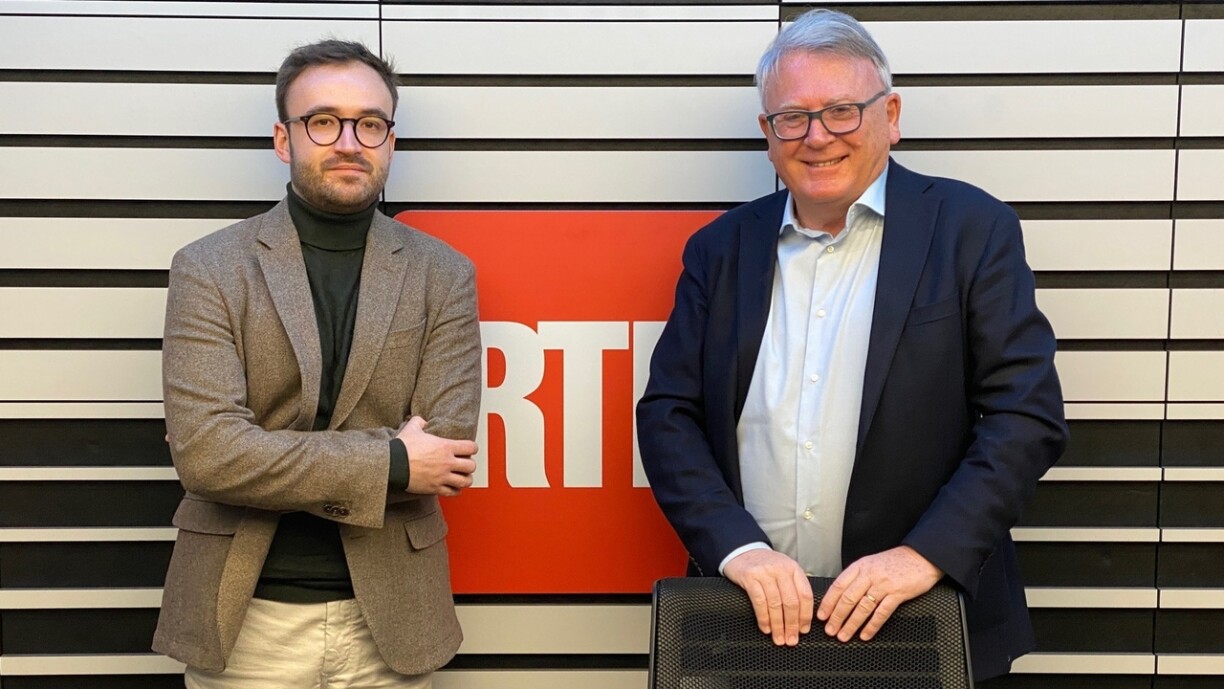
“Ukraine must win this war and this is why Kyiv has to be supplied with adequate weapons as quickly as possible. If Russia were to prevail, it would have disastrous consequences,” warned the European Commissioner for Jobs and Social Rights, Nicolas Schmit, during an interview with our colleagues from RTL Radio on Saturday.
-> Luxembourg continues supporting Ukraine
Schmit noted that, for a while, people in the EU lived with the false belief that the end of the Cold War would usher in a long period of peace. “They looked away, despite the fact that it had long been apparent that Vladimir Putin would not hesitate to use force,” Schmit said, adding that the Russian President “only understands the language of ‘strength’.”
The Commissioner thinks that the Union seriously has to think about the defence of Europe, adding that the European Commission has concrete plans to establish a weapons industry on the continent. For Schmit, relying too much on the US in the area of defence is another “mistake of the past.” While he does not wish to increase military spending, he acknowledges that “it has become a necessity.”
The prospect of Ukraine joining the Union while the war is still going on is “not realistic,” according to Schmit. Nevertheless, the EU wants to support Ukraine’s ambitions to implement reforms. Schmit explained that, aside from military assistance, rebuilding the country is the second priority. The Union would “benefit greatly” from Ukraine’s membership, with Schmit describing Ukraine as a country with “many educated people” who “could only benefit” the EU.
The politician from the Luxembourg Socialist Workers’ Party (LSAP) pointed out that the social consequences of the war are “substantial.”
Schmit explained that one of his missions as Commissioner for Jobs and Social Rights is to assess how people from Ukraine can be integrated into the European labour market. In principle, this works without any significant issues, Schmit said. Around 40% of Ukrainians who have left their nation for the EU, the majority of whom are women, have been incorporated into the EU labour market.
It seems increasingly likely that a reduction in working time will become a campaign issue ahead of the legislative elections later this year. Luxembourg’s former Minister of Labour is slightly more conservative in his demands compared to other members of his party. Current Minister of Labour Georges Engel, for instance, has advocated a 36-hour working week, a proposal which is currently the subject of a study.
-> Towards a 36-hour working week?: Labour minister ‘not against’ working time reduction
Schmit said that the current situation is “exceptional,” and that policymakers have to deal with two situations: First, the expectations of employers and particularly young workers are often worlds apart. Second, there is a major labour shortage across Europe.
For this reason, Schmit thinks that, for the time being, reductions in working time should be regulated through negotiations between social partners and collective agreements.
Schmit also argues that the collective bargaining system should be strengthened. In this regard, the European Commission has put forward a proposal to the member states that would cover 80% of all jobs. According to the National Institute of Statistics and Economic Studies (STATEC), Luxembourg currently has a coverage of 59%, including the civil service.
While Schmit stated that he will finish his commissioner mandate, he declined to comment on whether he will run again in the 2024 European elections.
Schmit believes that by stepping down as minister, the government was able to reshuffle and bring in new people, adding that “going and sitting on executive boards is not my style.”
The former minister does not want to comment on the work of the Luxembourgish government. On the other hand, when asked about the newly designated lead candidate of the Christian Social People’s Party (CSV), Luc Frieden, Schmit said that he finds it “surprising” that the former Minister of Finance is unable to clarify what he stands for. Since other CSV members are claiming that Frieden has changed, “he should be able to put his cards on the table,” Schmit thinks.
According to Schmit, the current coalition “did a good job managing complicated crises,” citing Deputy Prime Minister and Minister of Health Paulette Lenert as an example.
Schmit ended by saying that, as an LSAP member, he hopes that his party will be in a position to lead the next government after the elections in October.